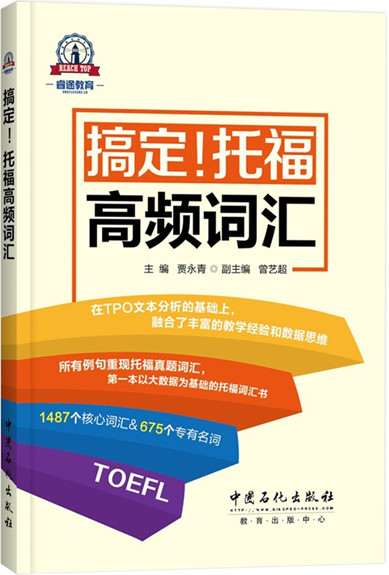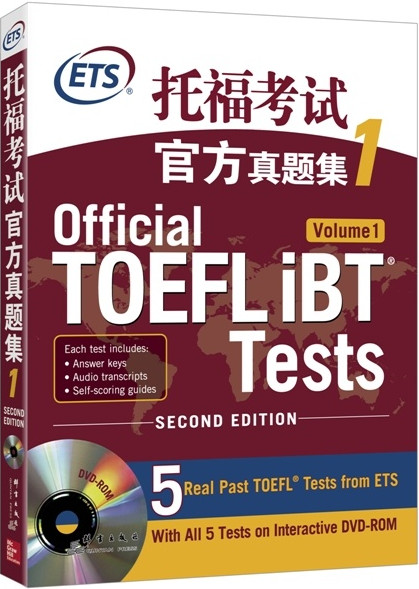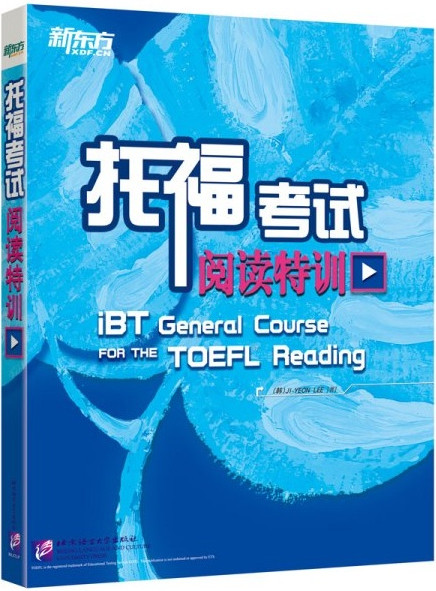2018年托福写作模拟试题:人们购买东西是出于虚荣而非需求
托福独立写作的命题形式一般为“Do you agree or disagree with the following statement…”(你是否同意下面的论断……),要求考生就题目中的论断给出自己的观点,并用例证来支撑自己的观点。字数要求300字以上,考试时间为30分钟。题目中的论断涉及各种话题,比如成功类话题、工作类话题、金钱类话题、科技类话题等等。
今天和大家分享生活类托福写作范文:人们购买东西是出于虚荣而非需求,是否认同?
Do you agree or disagree with the following statement:
People often buy products not because they really need them but because other people have them.
【解题思路】本题要求选择一方来阐述自己的观点,重点在于立场明确、理由清晰且富有逻辑性。只要能够有条理地将理由陈述清楚,加上一些富有变化的句型,就能够很好地论证观点了。
We make regular purchases every day, and most of the time, I believe people buy products because they need them. On the other hand, it is also true that sometimes our purchases are of human desires or so-called "wants", but this does not necessarily mean that we want these goods only because other people have them. It’s very possible for humans to like something purely because it is good to have them. Therefore, in my opinion, whether people buy products because they really need them or other people have them should be discussed case-by-case.
购物已经成为人们的一种日常,而且大多数时候,我相信人们会购买产品,是因为他们需要这些产品。另一方面,有时我们的购买是出于人类的欲望或所谓的“想要”,但这并不一定意味着我们想要这些商品仅仅只是因为其他人拥有这些东西。人类很有可能单纯的喜欢一些东西,因为拥有这些东西更有益。因此,在我看来,人们购买产品是因为他们真的需要他们,还是其他人有他们的产品,应该就事论事,逐个讨论。
【首段】开头段是独立写作的起始,也是引入话题、提出作者观点的重要段落。在首段中,分别按照一引二扣三观四铺的顺序进行习作。其中第一步是引入话题,即进行话题的背景讨论,第二步是扣题,即点明议论文要讨论的话题,第三步是观点陈述,即作者针对话题提出自己的论点,第四步是铺垫下文,即为议论文的主体段做好逻辑铺垫。
For goods like groceries, we buy them because they are essential for our everyday living. Using my mother as an example, each Friday after work, she would go to the grocery store to do grocery shopping for the family. Although she gets very tired after a week of work, she still does the shopping. She knows the importance of food for a family. Whether for breakfast, lunch, or dinner, she always prepares us a healthy and delicious meal. Giving us food is a way for her to show her love and care. She is not the only mom who does this. Most moms would go to grocery store to pick up food for the family. It is not because other moms buy food for their family so they need to do it as well, but rather, as humans we depend on food for survival. For college students, same principle applies. It is easy for students to get overwhelmed by school work and social life, but when it comes to grocery shopping, students still make time to do their shopping list. Buying healthy and nutritious food is necessary for students’ life. In this case, we buy products because we need them not because others have it.
对于像食品这样的商品,我们购买它们是因为它们对我们的日常生活至关重要。以我母亲为例,每个周五下班后,她都会去商店为家人购物。虽然经历了一周的工作她也很劳累,但她仍然会去购物。因为她知道食物对家庭的重要性。无论是早餐、午餐还是晚餐,她总是为我们准备一顿健康可口的饭菜。为我们提供食物是她表达她的爱和关心的一种方式。她并不是唯一一个这样做的母亲。大多数妈妈都会去商店为家人买食物。这并不是因为其他妈妈都去为他们的家庭购买食物,所以他们也需要这样做,而是作为人类,我们依靠食物生存。对于大学生来说,同样的原则也适用。学生们很容易被学校的工作和社会生活所淹没,但是当涉及到商店购物时,学生们还是会抽出时间来拟定他们的购物清单。购买健康和有营养的食物对学生生活是很有必要的。在这种情况下,我们购买产品是因为我们需要它们,而不是因为别人拥有它。
【第二段】围绕论点,举例说明,补充作者的两个生活中例子,生动具体阐述理由,论证观点
For some luxurious goods, however, such as an expensive bag or a pair of shoes, people might purchase them because others have them as well. This phenomenon is especially common among high school female students. As girls begin to care more and more about their looks, their perspective on beauty starts to change collectively. For example, a girl who wears a pair of UGG shoes may eventually starts a trend. If her classmates think having a pair of UGG is cool and pretty, then they will want a pair too. So it is common to see within a school that girls dress very similarly with one another. This is an example when purchases are not needs, but simply because others have it and so one wants to have it too. According to a survey conducted by Trend website, a significant percentage of luxurious goods buyers consider luxurious brand as a label for their social status or wealth and they tend to choose the brand that their colleagues or friends recognize or value.
然而,对于一些奢侈的商品,比如昂贵的包包或一双鞋,人们可能会购买它们,因为其他人也会买。这种现象在高中女生中尤为普遍。随着女孩们开始越来越多地在意自己的外表,她们对美的看法开始整体改观。举个例子,一个穿一双UGG鞋的女孩最终可能会引领一种潮流。如果她的同学认为有一双UGG很酷很漂亮,那么他们也会想要一双。因此,在学校里,女孩们穿着非常相似的衣服是很常见的。这是一个例子,当购买不是出于需要,而是仅仅是因为其他人拥有它,导致你也想拥有它。据趋势网站的一项调查显示,相当大比例的奢侈商品购买者认为奢侈品牌是他们社会地位或财富的标签,他们倾向于选择自己的同事或朋友认可或重视的品牌。
【第三段】通过进一步论证自己的观点。反面说理指的是在主体段深入论证自己观点的时候, 通过对与自己相反观点的不足之处剖析,反向证明自身观点的优越性。反面说理可以从另一个侧面提升自己观点的合理度和信服度。
In sum, I think most of the time people make purchases because we need them, but there are rare situations where making a purchase is because others have it.
总而言之,我认为大多数时候人们会买东西,因为我们需要他们,但偶尔也会有这样的情况:买东西是因为别人拥有它。
【尾段】本段是文章的尾段,对上文进行了承接,并对论点进行了概括分析,最后重申论点,让文章更加立场明确。
- 07-14·2018年托福独立写作范文及解析(2)
- 07-14·2018年托福独立写作范文及解析(1)
- 07-07·2018年托福写作模拟试题:怎样看待社交媒体上的新闻
- 06-22·2018年托福写作题库(15篇)
- 06-13·2018年托福写作模拟试题:选课
- 06-222018年托福写作题库(15篇)
- 06-072018年托福考试作文范文(35篇)
- 02-222018年托福写作模拟试题汇总
- 02-142018年托福考试独立写作范文汇总
- 11-282017年托福独立写作模拟试题汇总(15篇)
编辑推荐
- 模拟试题
- 历年真题





